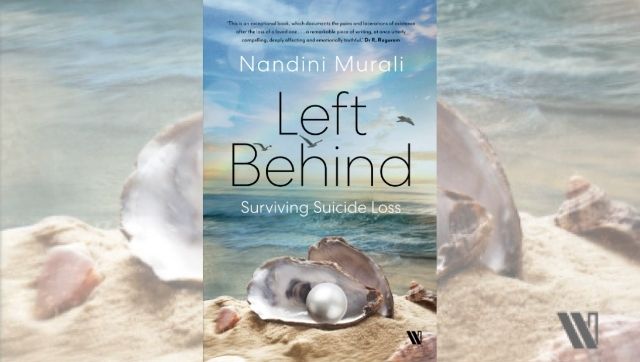For writer Nandini Murali, life changed when she lost her husband to suicide in 2017. At a time of inconsolable grief and trauma, she found support in her friends and family, and especially an uncle who saw a book waiting to be written. “I used to journal every day and especially the day after the tragedy, I journaled and did find it very healing. So over those next few months I would journal every day,” she tells Firstpost about the importance of writing. When it came to a book about her lived experience of tackling suicide loss, “The complete absence of structure in my life made even writing seem very daunting.” But with her uncle, she planned notecards about what each chapter would say, and began writing, leading to the book Left Behind: Surviving Suicide Loss. As she started reading more about suicide and surviving suicide loss, Murali came across the 4 S’s surrounding suicide: stigma, shame, secrecy, and silence. “Across the world, dominant narratives of suicide are located in the context of sin and crime. Hence, suicide is perceived as a character flaw,” she explains. “The very act of suicide is perceived by society as shameful, sinful, something to be ashamed of, and therefore very highly stigmatised.” This stigma then leads to shame, which demands secrecy, and finally, means silence. This 4 S cycle has damaging implications when thinking about suicide prevention. On the one hand, it inhibits people who are thinking about suicide or attempting suicide from reaching out, leading to an increased sense of hopelessness and helplessness. “Because of the stigma, the help-seeking behaviour is delayed.” On the other hand, for those impacted by suicide loss, there is a pressure to cover it up or invent a socially acceptable reason for the cause of death.
“In a family, a death by suicide is often an open secret nobody wants to talk about. I’m very concerned because this is the intergenerational trauma the family lives with.”
The first step toward challenging this stigma and having respectful, healthy conversation is recognising that suicide is primarily a response to pain. “The primary goal of suicide is to avoid pain. It’s to end pain, not to end life.” With individuals who are suicidally ideating, who have attempted suicide, or have ended up ending their lives, instead of branding them as cowards or selfish, one must focus on their actions as primarily acts of pain. The other thing lacking from conversation around suicide is a lack of safe, supportive spaces for conversations about suicide. “I firmly believe that preventing suicide is everybody’s business and conversations matter.” From mental health professionals and healthcare providers to students and teachers and from policymakers and the government to people with lived experience of either attempts of suicide or suicide loss, Murali believes that all different stakeholders should be involved in the conversation around suicide. Also lacking, points out Murali, is post suicide services for survivors of suicide loss, which can enable an impacted family to start rebuilding their life. “That conversation, those strategies, support systems, and sensitive, informed services are completely lacking.” In both cases, she points to the moralising, stereotyping, and stigma around conversation. “That said, suicide is not an easy topic to talk about. It’s extremely challenging. Therefore the conversations need to be grounded in a spirit of utmost empathy and deep compassion.” It is for these reasons that she founded SPEAK, an initiative of MS Chellamuthu Trust and Research Foundation, Madurai, and launched SPEAK2US (9375493754), a helpline for people in psychological distress. “I believe that the 4 Ss can only be challenged if the diverse stakeholders converge and have a common, long-term vision of preventing suicide.” Through empathy and compassion, this conversation can be driven forward to include not just survivors but also allies who have not experienced suicide loss first-hand, hopefully leading to lasting impact, either in terms of legislation or in creating access to support services and spaces. The most important thing is for people living with suicide loss to step out of the vicious cycle of stigma, shame, secrecy, and silence, and speak about their lived experiences. “I would love people impacted by suicide loss to talk about it, write about it, let people know. Because I think one of the reasons why the 4 Ss fester is the appalling ignorance about it. And I find that whenever I start talking and we share authentically, people start resonating with it, even those without similar experiences.” And it is with this intent, of mainstreaming the conversation around suicide, that Murali wrote her book. Read an excerpt from Left Behind: Surviving Suicide Loss here .
****
A collection of Suicide prevention helpline numbers are available here. Please reach out if you or anyone you know is in need of support. The All-India helpline number is: 022-27546669


)
)
)
)
)
)
)
)
)



